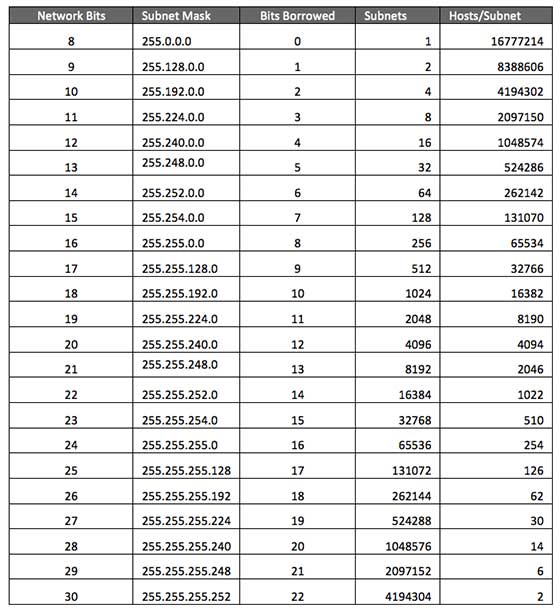Network Addresses
IP addresses uniquely identify nodes across the internet. They are registered using an ISP.
There are two versions of IP address:
- IPv4: 32-bit address composed of 4 octets,
148.114.252.10 - IPv6: 128-bit address composed of 8 16-bit octet pairs,
2003:0db5:6123:0000:1f4f:0000:5529:fe23
IPv4 Address Types
- Unicast: An address associated with a specific host.
- Network: An address whos host portion is set to all binary zeroes, e.g.
192.168.1.0. - Broadcast: An address to which each member of a particular network will listen. Will have the host portion set to all 1 bits, e.g.
172.16.255.255. - Multicast: An address to which appropriately configured nodes will listen, e.g.
224.0.0.2. Only nodes specifically configured to pay attention to a specific multicast address will interpret packets for that multicast group.
Reserved Address
127.x.x.x: loopback address.0.0.0.0: address when attempting to communicate with server.255.255.255.255: General broadcast private address.10.x.x.x,172.16.y.y,192.168.z.z.
IPv4 Address Classes

Netmasks are used to determine how much of the address is used for the network portion and host portion.

Managing Hostname
The hostname is a label to identify a networked device. For DNS, hostnames are appended with periods to create the FQDN.
To set the hostname for the session only:
sudo hostname myhost
To modify the hostname permanently:
sudo hostnamectl set-hostname myhost
The value is stored in:
/etc/hostname